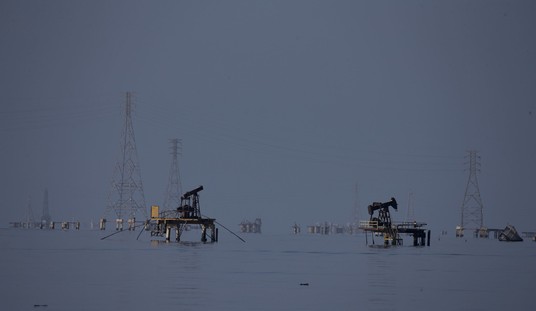It’s one of the cheesiest anti-oil PR campaigns I’ve seen: a “promoted” twitter account called @TheOilyBird, a snarky oil company h8r. Enviros and greenies retweet @TheOilyBird’s oil industry bashing, without bothering to look at its source.
As it turns out, TheOilyBird has his own website:
I’m fighting for a cleaner future. I’ve had it with the oil companies: They cost Americans money, pollute the environment, and are directly responsible for my slick condition. The worst part is, they’ll stop at nothing to block alternatives, like renewable fuel.
And there we find that the site and the twitter account are sponsored by Fuels America:
OK, so Fuels America is a coalition of large industrial companies and Ag lobbies to promote ethanol and the Renewable Fuels Standard, Congress’s ethanol mandate. Cool. If you don’t have a product that sells itself, attack its competitors.
I do find it amusing that DuPont owned Conoco until 1999, a year when oil traded as low as $10 per barrel. Conoco is now ConocoPhillips, the nation’s third largest oil and gas company. Seller’s remorse, maybe?
Ag giant Archer-Daniels-Midland (ADM) has long cast a covetous eye on the motor fuel market, but can’t cut it without government help.
And as for the rest of the members of Fuels America, do the appreciate the irony that their product is primarily used as a gasoline additive? In other words, they complain about “dirty oil” but dirty oil is what makes their crappy* product marketable.
Let’s put aside the question of whether it’s wise to use food crops for fuel, given the calamitous impact of that policy on the Third World. Let’s also ignore the rather significant issue of whether there’s a net gain of energy in grain ethanol (which is why the industry clings so tightly to its tax credits and mandates — few people would freely choose ethanol as a fuel on its own merits).
Aside from all that, it is an undeniable fact that grain ethanol is an ecological disaster. Fertilizer runoff causes massive algae blooms which choke the northern Gulf of Mexico every summer. As documented in a recent New York Times article, corn is the most resource-intensive crop a farmer can plant. Driven by the economic pressure of corn prices which have tripled in recent memory, farmers in the semi-arid western plains often choose the short term benefit of corn over conservation of water in the rapidly-depleting Ogallala Aquifer:
At an average 14 inches per acre in a growing season, a corn crop soaks up groundwater like a sponge — in 2010, the State Agriculture Department said, enough to fill a space a mile square and nearly 2,100 feet high. …
But as long as there is enough water, most farmers will favor corn. “The issue that often drives this is economics,” said David W. Hyndman, who heads Michigan State University’s geological sciences department. “And as long as you’ve got corn that’s $7, then a lot of choices get made on that.”
The NYT article and its accompanying graphic are worth your time. Groundwater resources are truly irreplaceable. In some parts of western Kansas and the Texas Panhandle, the level of water in the aquifer has dropped 100 feet or more. Wells which once gave up water at the Macondo-like rate of 1600 gallons a minute (equivalent to 55,000 oilfield barrels per day) have dried up.
Subsidies for corn ethanol, and mandates for its use, are corporate welfare pure and simple. You’ll not find an honest environmentalist who supports its use as a motor fuel. But every four years we are subjected to an ugly spectacle called the Iowa Presidential Caucuses that unfailingly pump new life into these worthless programs.
* To be specific, by “crappy” I mean ecologically harmful, dirty, inefficient and corrosive.
P.S. Fuels America lies in its video when it says the oil industry receives government subsidies.
Cross-posted at stevemaley.com.













Join the conversation as a VIP Member